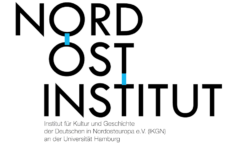The Search for the "Good Life" in Germany (Osnabrück)
A research project by Dr. Nino Aivazishvili-Gehne (Advised by Prof. Dr. Jannis Panagiotidis)
The project focuses on people from the former USSR in the city of Osnabrueck, Germany. This group is diverse and includes people from all former Soviet republics who are now experiencing life in a different political, socio-economic and cultural system. In social sciences, migrants from the former USSR are frequently referred to as “Russian Germans”; “repatriates”; “Displaced” or “Jews from the former Soviet Union”, while outside academia, they are often generalized and referred to as just “Russians” which has a pejorative inclination. Similarly to other migrants, they are often associated with criminal behavior and religious radicalization. The project examines the societal perceptions of migrants from the former USSR in Germany in Osnabrueck and its consequences as well as their own agendas and proactive practices. How did they change their lives and their environment? What were the reasons to emigrate and how do they pursue their goal to find (or create) a “good life” in Germany.
The project uses several qualitative research methods from the field of social anthropology, especially participant observation, biographical interviews expert interviews. The results will be complemented by an analysis of the media discourse and political instruments relating to the focus group.







